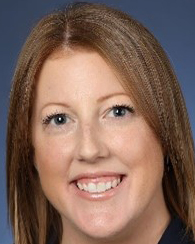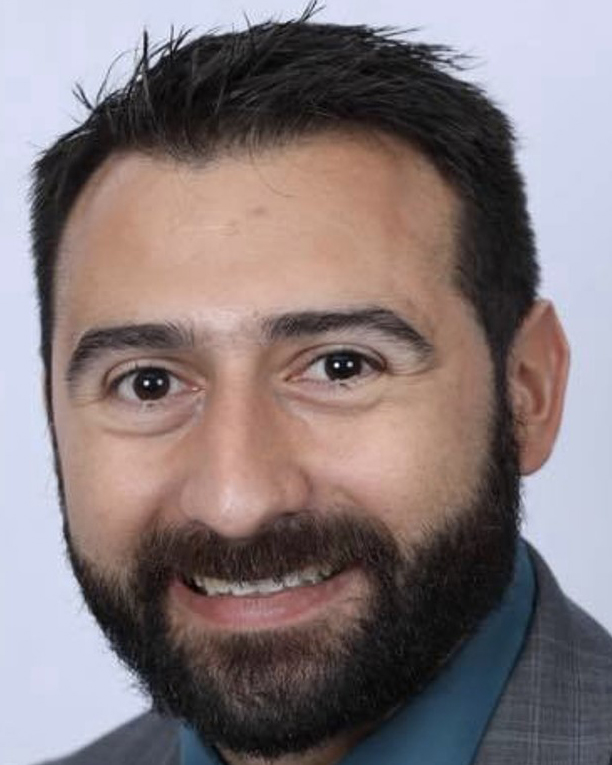Course Description
Join your colleagues to dialogue about challenging substance use disorder (SUD) cases where evidence can’t be uniformly applied and doesn’t always exist. Through 30 minutes of facilitated case discussion and debate, participants will problem solve solutions offering all the opportunity to learn. Though answers aren’t always available, together we chase down the possibilities and improve patient care!
Once registered, you will be able to review the posted case presentation for each session, which will be made available 2 weeks prior to each webinar in the "course materials" section below.
*Note: Case presentation sessions will not be recorded, so don’t miss out on these live webinars and an opportunity for valuable discussion and learning with colleagues.
November 6, 2024 | 11:00-11:30 AM Central: Management of Opioid Use Disorder in Adolescent Patients – A Microinduction Strategy
Case Overview: As many as 14% of students between age 12 and 18 have misused an opioid at least once in their lifetime. This highlights the prevalence of opioid use disorder (OUD) amongst pediatric and adolescent patients. Despite this prevalence, data regarding choice of treatment, efficacy, safety, and monitoring of pediatric or adolescent patients with OUD is scarce. This presentation will highlight pertinent data regarding pediatric and adolescent opioid use disorder, the applicability of a microinduction strategy of buprenorphine towards pediatrics and adolescents, and creating monitoring parameters for OUD patients in a pediatric academic medical center.
Moderator: Aaron Salwan, PharmD, MPH, BCPP
Case Presenters:
|
|
Megan Kemper, PharmD Dr. Kemper has been a clinical pharmacist working with the inpatient psychiatry team at St. Louis Children’s hospital for 5 years. In this time, she has been part of a care team treating patients with substance use disorders, including alcohol, marijuana, opioids, and other substances. Her role includes providing pharmacotherapy recommendations and patient education. In addition to her patient care roles, she is a member of the BJC Healthcare Harm Reduction Committee designed to standardize care for patients with opioid use disorder across the hospital system. |
 |
Parker Lindsey, PharmD Dr. Lindsey is a PGY-2 Pediatric Pharmacy Resident at St. Louis Children’s hospital with a primary interest in child/adolescent psychiatry. Parker’s responsibilities include acute inpatient management of pediatric and adolescent patients presenting with use of substances such as marijuana, alcohol, opioids, and various illegal substances. Parker’s care of patients involves leading weekly patient education sessions to patients admitted to St. Louis Children’s Hospital’s inpatient psychiatric unit and providing pharmacotherapy recommendations to psychiatric providers. Post residency, Parker’s goal is to practice as a clinical specialist in pediatric psychiatry. |
February 26, 2025 | 11:00-11:30 AM Central: MethaDO or MethaDON'T: Methadone Maintenance in the Setting of QTc Prolongation
Case Overview: Methadone is frequently cited as being a cause of QTc prolongation in patients on chronic therapy. This session will discuss the use of methadone maintenance for the treatment of opioid use disorder in the setting of QTc prolongation. It will briefly summarize the risks and benefits of using methadone in this population and considerations for new start and continuation of therapy.
Moderator: Troy Moore, PharmD, MS, BCPP
Case Presenters:
|
|
Zoe Karavolis, PharmD, MPH, BCPP Dr. Karavolis is a clinical pharmacist in the Alcohol, Drug, and Addiction Treatment Program at McLean Hospital. She completed post-graduate training in psychiatry at UPMC. She works closely with patients in the inpatient detox setting as well as residential and outpatient substance use clinics. She leads the hospital's take-home naloxone program and conducts overdose response training with staff members. She serves as a subject matter expert for substance use disorders to the Mass General Brigham Health System and various other professional organizations. |
 |
Cody Thomas, PharmD Dr. Thomas is a PGY2 Psychiatric Pharmacy Resident at McLean Hospital. He completed his pharmacy school education at the University of the Incarnate Word and his PGY1 pharmacy residency at Corpus Christi Medical Center. Throughout his Substance Use Disorders rotation, he actively contributed to patient care through providing medication recommendations and counseling patients on newly started medications for alcohol use disorder, opioid use disorder, and stimulant use disorder. His clinical interests includes substance use disorders, child and adolescent psychiatry, and mood disorders. |
 |
Rebecca Trojan, PharmD Dr. Trojan is a PGY2 Psychiatric Pharmacy resident at McLean Hospital. She completed her pharmacy school education at the University of Rhode Island and her PGY1 Pharmacy residency at Lawrence + Memorial Hospital in Connecticut. She is passionate about promoting harm reduction and advocating for equitable treatment for substance use disorders. Throughout her residency training, she has collaborated with various practitioners to provide comprehensive care to patients with substance use disorders and provide education on treatment modalities.
|
March 26, 2025 | 11:00-11:30 AM Central: SuboxONE Too Many: A Case of Unintended Excess
Case Overview: While buprenorphine remains a cornerstone in treating opioid use disorder (OUD), the initiation process can present unique challenges. This session will discuss the initiation of Suboxone in a patient with newly diagnosed OUD who unintentionally took nearly four times the accepted maximum daily dose. It will explore the impact of drug-drug interactions, serotonergic side effects, opioid withdrawal, and uncontrolled anxiety on the induction process, while highlighting the absence of respiratory compromise.
Moderator: Eileen Mintz, PharmD, BCPP
Case Presenter:
 |
Rebecca (Becky) Hoss, PharmD, BCPP Dr. Hoss is a Senior Clinical Pharmacist at UC Davis Medical Center, specializing in ambulatory care management of substance-related disorders (SRDs) and chronic pain. She earned her Doctor of Pharmacy in 2008, held board-certification in pharmacotherapy (BCPS) from 2013-2021, and achieved board certification in psychiatric pharmacy (BCPP) in 2021. Dr. Hoss currently serves on the AAPP Substance Use Disorder (SUD) Committee. Dr. Hoss strives for continued personal and professional growth, as well as open sharing of clinical experience and knowledge to better her work as a patient advocate. |
May 21, 2025 | 11:00-11:30 AM Central: Kratom Use Disorder: Withdrawal Management and Psychiatric Implications in Patients with Psychotic Disorders
Case Overview: Kratom is a tropical shrub native to Southeast Asia, traditionally used to enhance energy and relieve pain. In the United States, it has gained popularity as an opioid substitute and is widely available in various forms, including capsules, powders, and liquids. Like prescription opioids and heroin/fentanyl, kratom can lead to tolerance, dependence, and withdrawal. Additionally, its misuse may worsen mental health conditions. This presentation will explore treatment approaches for kratom use disorder and withdrawal, as well as its role in the psychiatric decompensation of patients with psychotic disorders.
Moderator: Marnie Noel, PharmD, BCPP
Case Presenter:
 |
Aaron Salwan, PharmD, MPH, BCPP Dr. Salwan is a Behavioral Health Clinical Pharmacy Specialist at Montefiore Nyack Hospital, where he is part of a multidisciplinary team treating patients with serious mental illness and substance use disorders in an acute care setting. He has developed pharmacist-driven policies to enhance the safe use of antipsychotic medications, including therapeutic drug monitoring and metabolic screening protocols. In addition to his clinical role, Dr. Salwan conducts behavioral research focused on patients with substance use disorders and serves as Vice Chair of the AAPP Substance Use Disorder Committee. |
Webinar Series Dates (Add to Calendar)
You must be signed in as a member to view the SUD Scoop dates.
Disclosure
The SUD Scoop Series is an unaccredited member-driven initiative to facilitate dialogue among psychiatric pharmacy professionals. While presenters are encouraged to disclose any conflicts and to use the best evidence available, the presentations are not peer reviewed and attendees should accordingly verify details prior to making significant practice changes.
Continuing Education Credit and Disclosures
AAPP owns the copyright, is licensed or has received permissions for use of, or is otherwise permitted to use copyrighted materials within any CPE activity. Authors and speakers are required to obtain necessary copyright permissions for content in CPE activities. AAPP complies with copyright laws and regulations.


